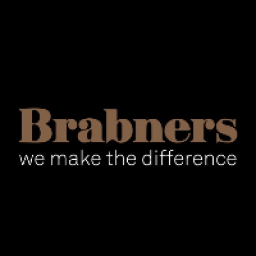On Monday 11 April 2022, five new immigration routes went live as part of the new Global Business Mobility (GBM) Visa.
In this series of blogs, we have been exploring each of these five subcategories of the GBM Visa in turn. In this final blog of the series, we focus on the Service Supplier route, discussing the key features of this route and when this is most likely to be a popular choice for businesses.
The Service Supplier Visa
The Service Supplier visa was introduced in the UK as part of the revised GBM Visas to replace the old International Agreement Temporary Work route.
In essence, this visa allows employees of overseas companies (or self-employed professionals based outside the UK) to enter the UK to undertake temporary work assignments. One of the key eligibility criteria is that the service or work being provided by the overseas employee must be covered by a valid international trade agreement for a UK business.
A worker who comes to the UK on a Service Supplier visa will only be able to provide the specific services for which the visa has been granted. They will not be permitted to hold any other employment in any capacity. The Service Supplier visa does, however, allow a worker to study and volunteer in the UK should they so wish, and travel abroad and return to the UK during the course of their assignment. They are also able to bring their partner and children with them to the UK as ‘dependents’ (assuming they meet the relevant eligibility criteria).
Eligibility
For a UK business to use this route, they must first obtain a sponsor licence in this category. They must also register details of any relevant contracts/international agreements. This can be done either at the licence application stage or during the licence.
To be eligible to enter the UK on a Service Supplier visa, an individual must be an existing employee of the relevant overseas business and must usually have been working for the business overseas for a period of at least 12 months (or have at least 12 months’ professional experience if the worker is a self-employed service provider).
In addition to the above, the applicant must be undertaking work in respect of one of the eligible trade agreements either in one of the prescribed eligible roles, or by demonstrating they have the requisite skills and experience. In this case, they will typically be required to have a bachelors degree or higher in any subject (or a technical qualification that is equivalent to a bachelors degree), and 3 years’ professional experience relevant to the service being provided (or 6 years’ professional experience if self-employed) - although there are some specific exceptions to this for different sectors.
Importantly, the individual must also meet the prescribed nationality requirements of the relevant international agreement.
Unlike some of the other GBM routes, this visa route does not have a minimum salary requirement, but visa holders must be paid at least National Minimum Wage for their work.
The UK sponsor will need to provide the worker with a Certificate of Sponsorship that confirms these eligibility criteria are met.
As is the case with other GBM routes, there is no minimum level of English language skill required for the applicant.
Under the Service Supplier visa, a worker can stay in the UK for a maximum of six or 12 months, depending on the terms of the international trade agreement under which the services are being provided. A worker who has entered the UK on a Service Supplier visa may apply to extend their leave if they continue to be contracted to work on the same assignment and this has not yet completed, however this would be subject to them not reaching the maximum total stay as detailed above. However, if the worker has previously entered the UK on a Service Supplier visa or another one of the GBM visas (or the historic Intra-company Transfer visas), workers can only stay in the UK for the normal maximum cumulative period of five years in any six-year period.
As also discussed in our previous blogs and as is the case with all of the other GBM routes, this is a temporary route which does not lead to permanent settlement in the UK. However, individuals may be able to switch into another category which does lead to settlement, such as the Skilled Worker route.
Who might need to use this route?
This route is extremely helpful for international and overseas businesses who are seeking to provide services to UK businesses by sending employees into the UK on assignment, and also for self-employed individuals who wish to enter the UK in order to carry out their trade.
As an example of when a business may wish to make use of this visa:
A French IT firm has a contract to develop a new payment handling system for a UK bank. They do not have a UK presence. The UK bank already holds a sponsor licence and so, can add the GBM Service Supplier category to their licence free of charge.
The contract is covered by the sectoral commitment on IT services within the EU-UK Trade and Cooperation Agreement. So the UK bank can sponsor the IT services firm’s EU workers to come to do client-side work related to the delivery of the project, such as requirements gathering and user testing.
Whether this route proves to be a popular way for UK organisations to leverage overseas talent is yet to be determined. Potentially this may even provide a route for staffing costs to be reduced, given that there is no minimum salary requirement associated with this visa route. However, the complexity and administrative requirements associated with this route, and sponsorship more generally may prove off-putting. Having said that, it is clear that this GBM option shouldn’t be discounted and may provide opportunities for UK companies to explore the potential to recruit from overseas for temporary assignments in eligible areas, opening them up to a much larger pool of talent.
If you have not yet reviewed our other blogs in the GBM series, covering each route in detail, you can find them on the Business Immigration section of our website.
If you have any queries regarding the new visa routes or need help with applying for/managing a sponsor licence application or making specific visa applications, please contact Laura Darnley or any member of our team of expert business immigration solicitors.
“Brabners
in Lancashire is located at Sceptre Court, Walton Summit. If you would like to
discuss anything raised in this article, please give us a ring on 01772 823921,
quote “Lancashare” and a member of our team will be happy to assist you.
If
you would like to receive more content like this, please head to our website
where you can subscribe to receive regular updates of current articles and
events.“
 Fleetmaxx Solutions
Fleetmaxx Solutions








